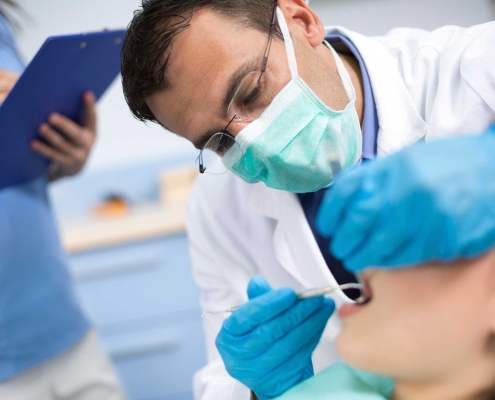Root Canal

The American Association of Endodontics defines a root canal as a procedure to remove infected or inflamed pulp from the inside of a tooth. The purpose of a root canal in is to save the natural tooth, prevent future infections, and remove harmful bacteria. Thanks to rapidly advancing dental technology, the root canal procedure is no more uncomfortable than having a cavity filled or any other type of common dental process.
How to Know if You Need a Root Canal
If you have never had a root canal before, it can be challenging to determine the specific oral health problem you are experiencing. We urge you to schedule an appointment with Oneonta Dental Center as soon as possible if you notice any of the symptoms listed below.
- Biting or chewing causes significant pain
- Chipped or cracked tooth
- Gums appear darker than usual due to decay
- Gums feel tender or swollen
- Pimples appear on your gums
- Sensitivity to hot and/or cold foods, even several seconds after you stop eating or drinking
Having some of these symptoms does not necessarily mean that you need a root canal. However, they do indicate that something is wrong with your oral health. Prompt treatment often means the difference between a quick recovery and ongoing discomfort or worsening of your issues.
Steps Involved in a Root Canal Procedure
After you get comfortable in the dental chair, our dentist or hygienist will inject a local anesthetic into your gums to ensure that you do not experience pain during your root canal. You will also have a rubber dam placed in your mouth to prevent saliva from touching your treated tooth.
Our dentist then removes the diseased pulp from your tooth chamber. After removing the inflamed or infected pulp, our dentist cleans your tooth from the inside and affixes a dental crown on top of it. The purpose of the crown is to prevent future infections and root canals.
Root canals offer several benefits, such as your teeth having the proper bite force, improved chewing ability, and protecting other teeth from strain or excessive wear.
If you are uncomfortable and think it could be due to a bacterial infection inside one of your teeth, please contact us to schedule an appointment.

